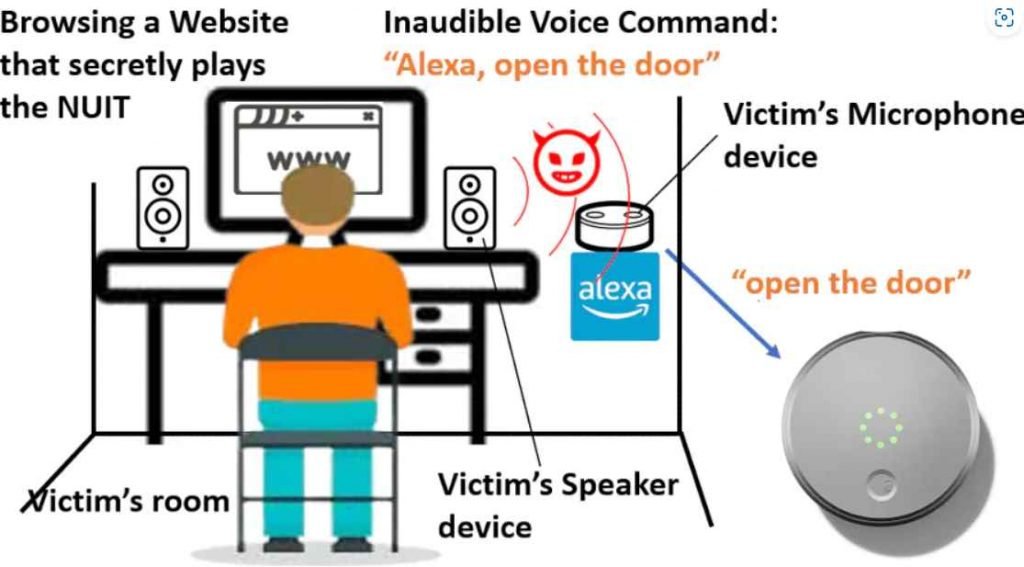The Near-Ultrasound Invisible Trojan, or NUIT, was developed by a team of researchers from the University of Texas at San Antonio and the University of Colorado Colorado Springs as a technique to secretly convey harmful orders to voice assistants on smartphones and smart speakers.

If you watch videos on YouTube on your smart TV, then that television must have a speaker, right? According to Guinevere Chen, associate professor and co-author of the NUIT article, “the sound of NUIT harmful orders will [be] inaudible, and it may attack your mobile phone as well as connect with your Google Assistant or Alexa devices.” “That may also happen in Zooms during meetings. During the meeting, if someone were to unmute themself, they would be able to implant the attack signal that would allow them to hack your phone, which was placed next to your computer.
The attack works by playing sounds close to but not exactly at ultrasonic frequencies, so they may still be replayed by off-the-shelf hardware, using a speaker, either the one already built into the target device or anything nearby. If the first malicious instruction is to mute the device’s answers, then subsequent actions, such as opening a door or disabling an alarm system, may be initiated without warning if the first command was to silence the device in the first place.
“This is not only a problem with software or malicious software. It is an attack against hardware that makes use of the internet. According to Chen, the non-linearity of the microphone design is the flaw that has to be fixed by the manufacturer in order to eliminate the vulnerability. “Among the 17 smart gadgets we evaluated, [only] Apple Siri devices need the user’s voice to be hijacked, while other voice assistant devices may be triggered by using any voice or a robot voice,” the study’s authors write.
Using headphones is Chen’s recommendation for anybody worried about the NUIT attack, despite the fact that a genuine defense against NUIT would involve the usage of customized hardware. She indicates that the risk of being attacked by NUIT is reduced if you do not utilize the speaker to emit sound. “When using earphones, there is a limit to the amount of sound that can be sent to the microphone since the volume of the sound coming from the earphones is too low. In the event that the microphone is unable to pick up the subversive inaudible order, the underlying voice assistant won’t be able to be maliciously triggered by NUIT.

Information security specialist, currently working as risk infrastructure specialist & investigator.
15 years of experience in risk and control process, security audit support, business continuity design and support, workgroup management and information security standards.










